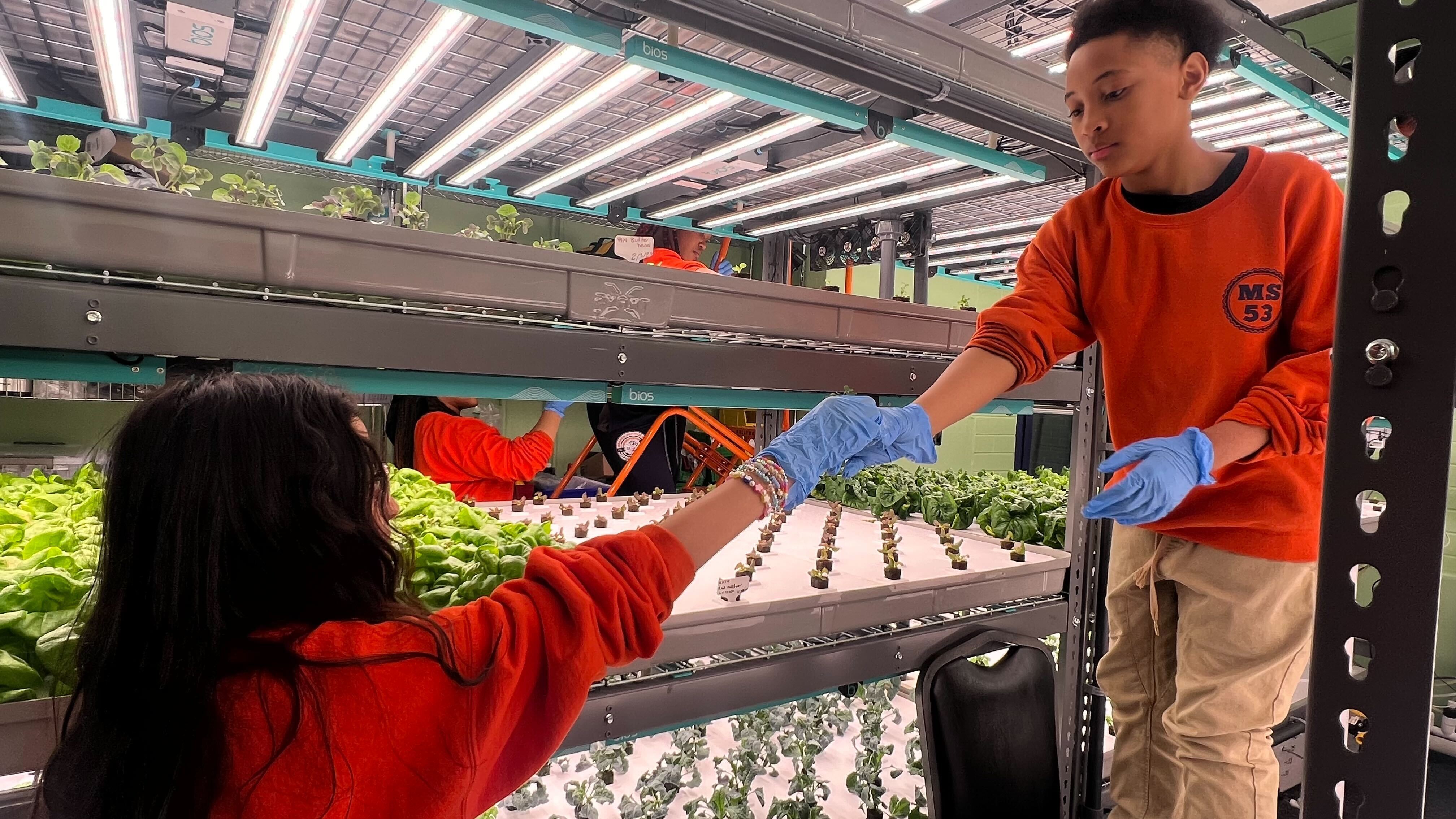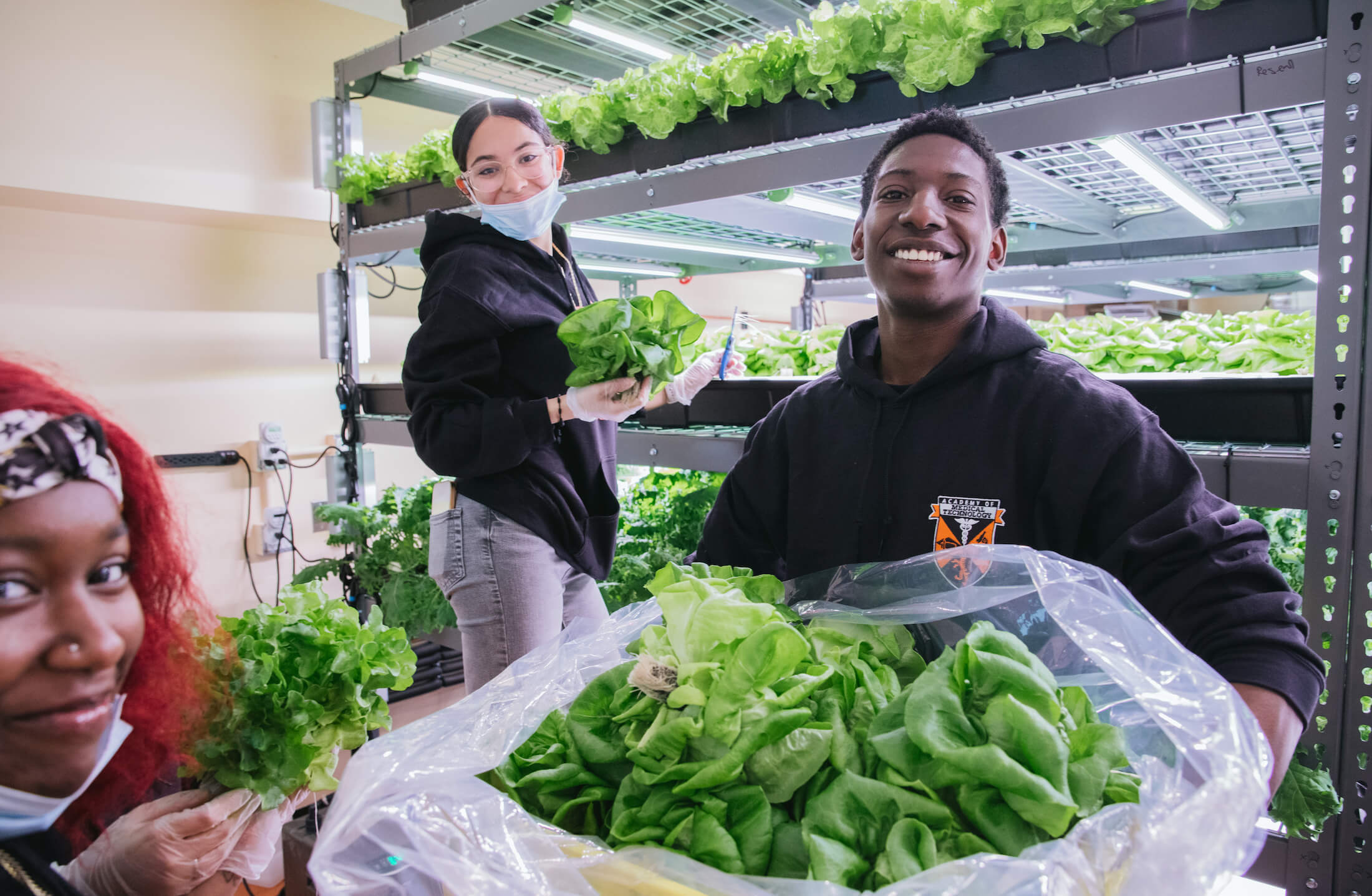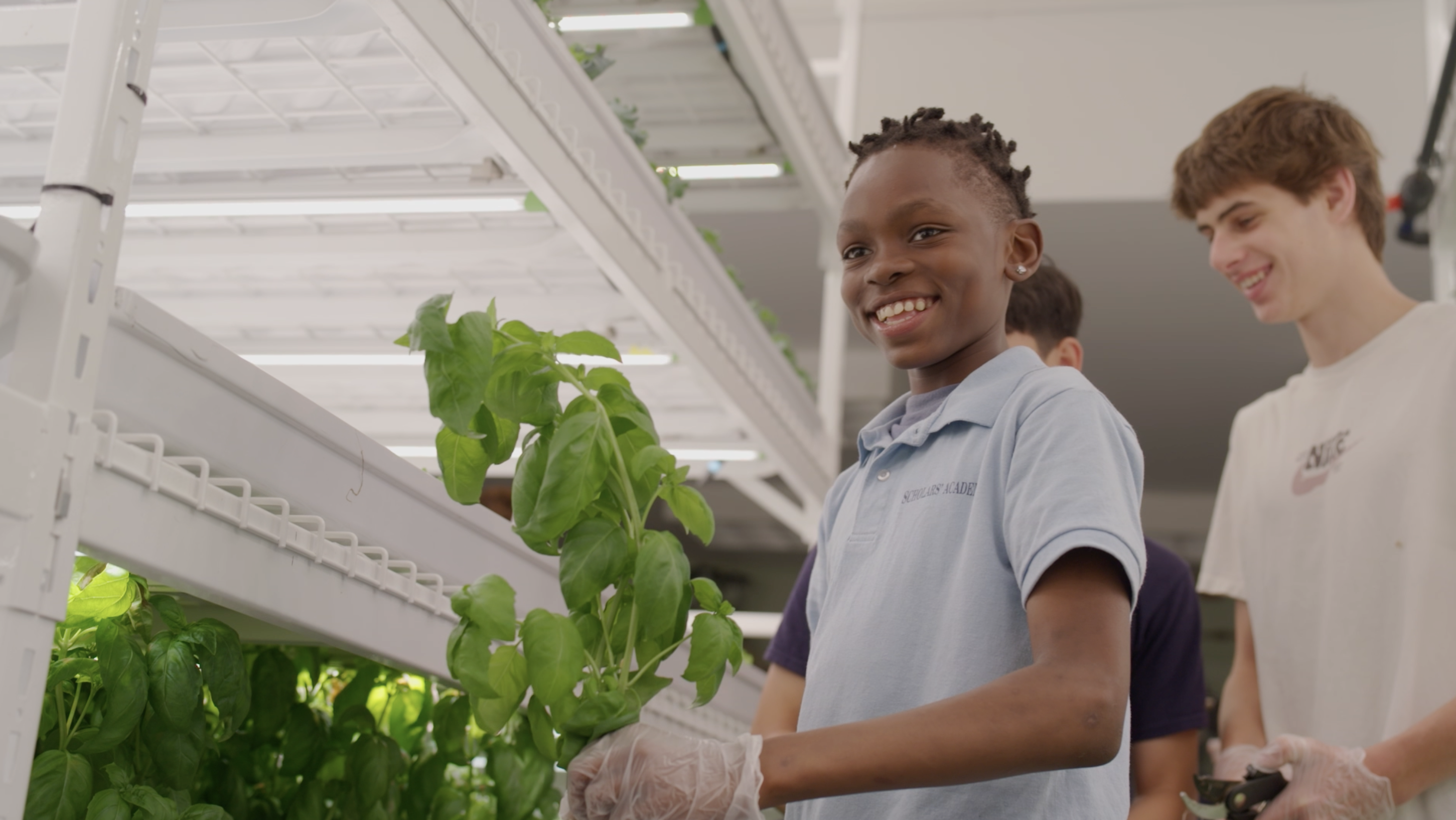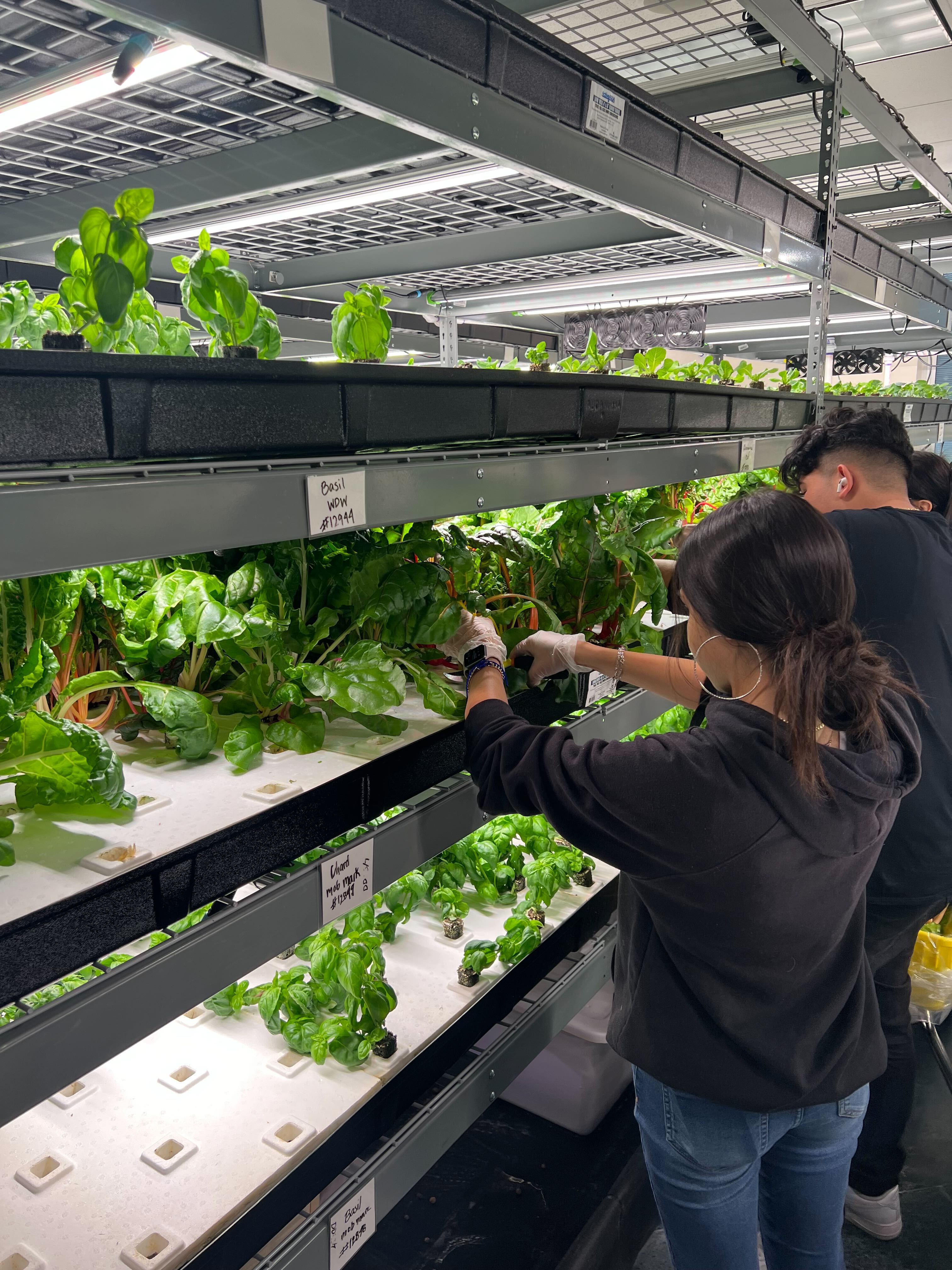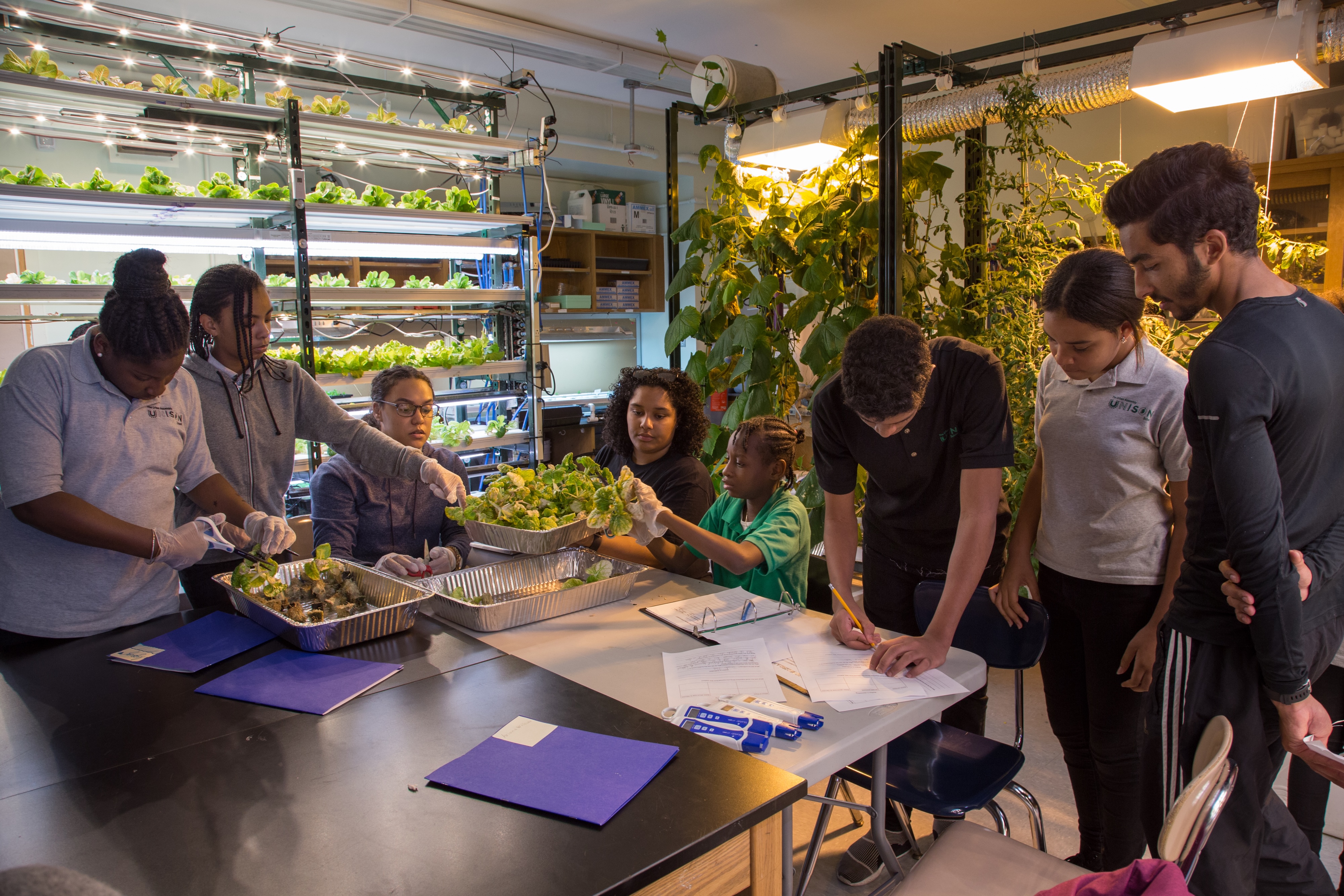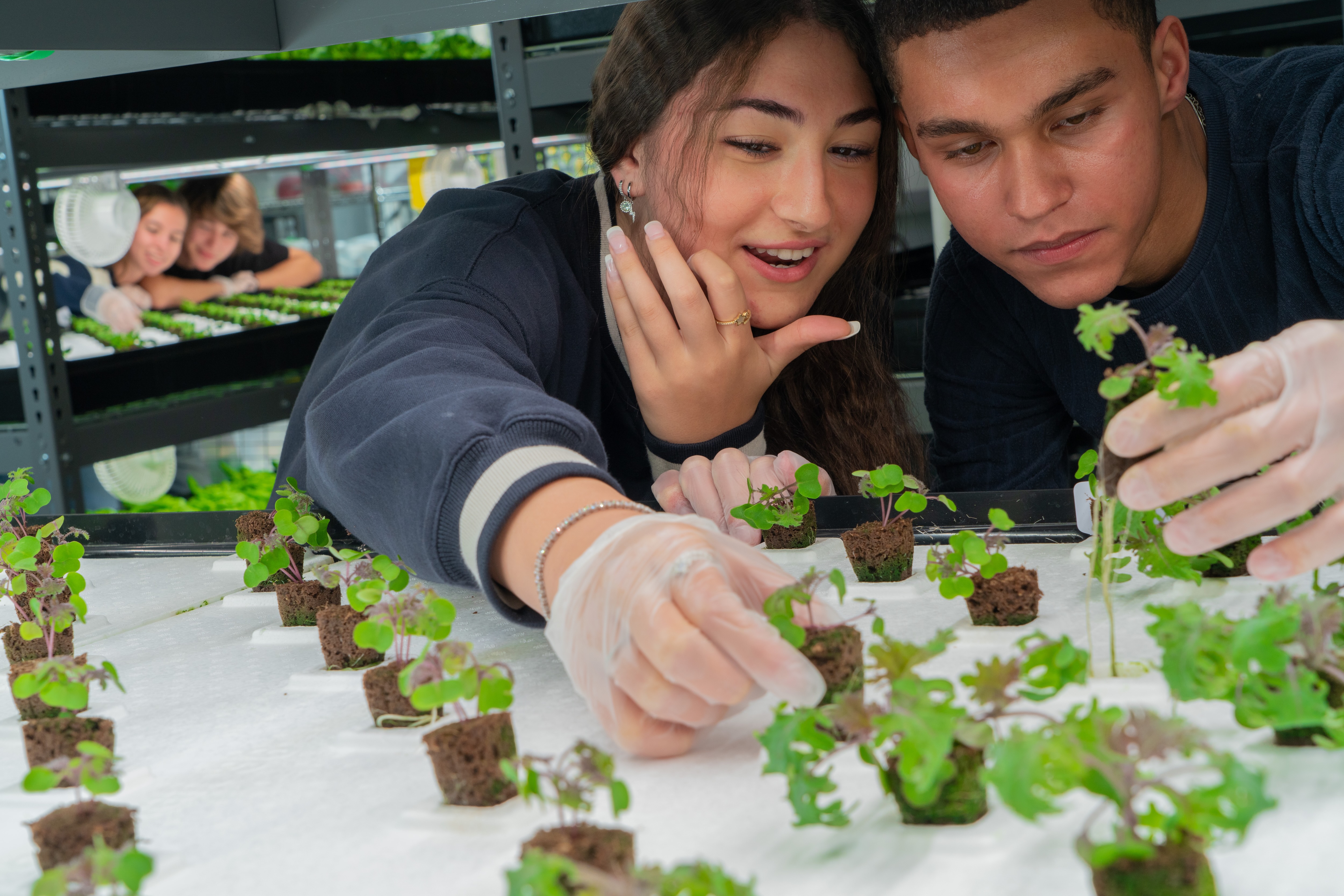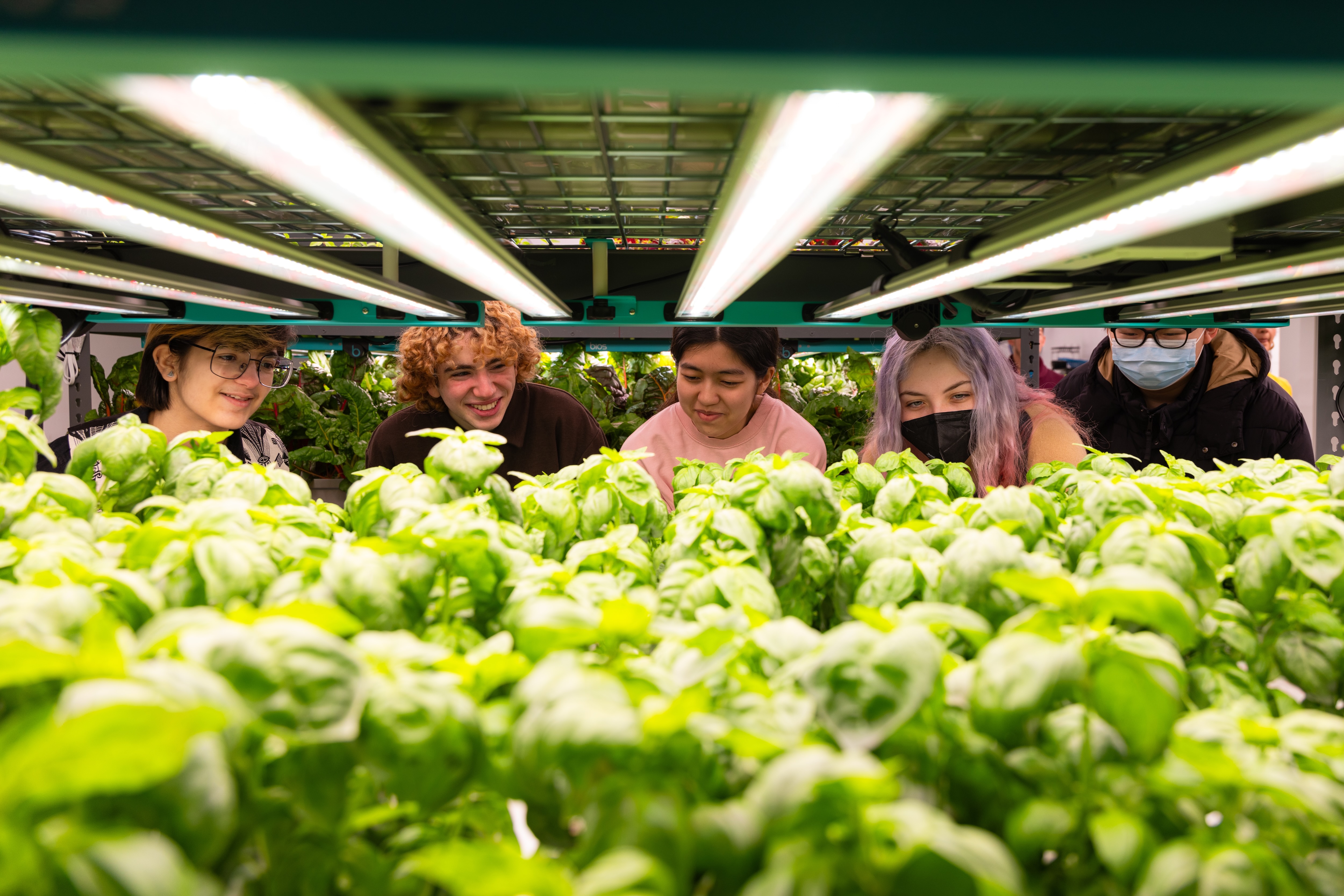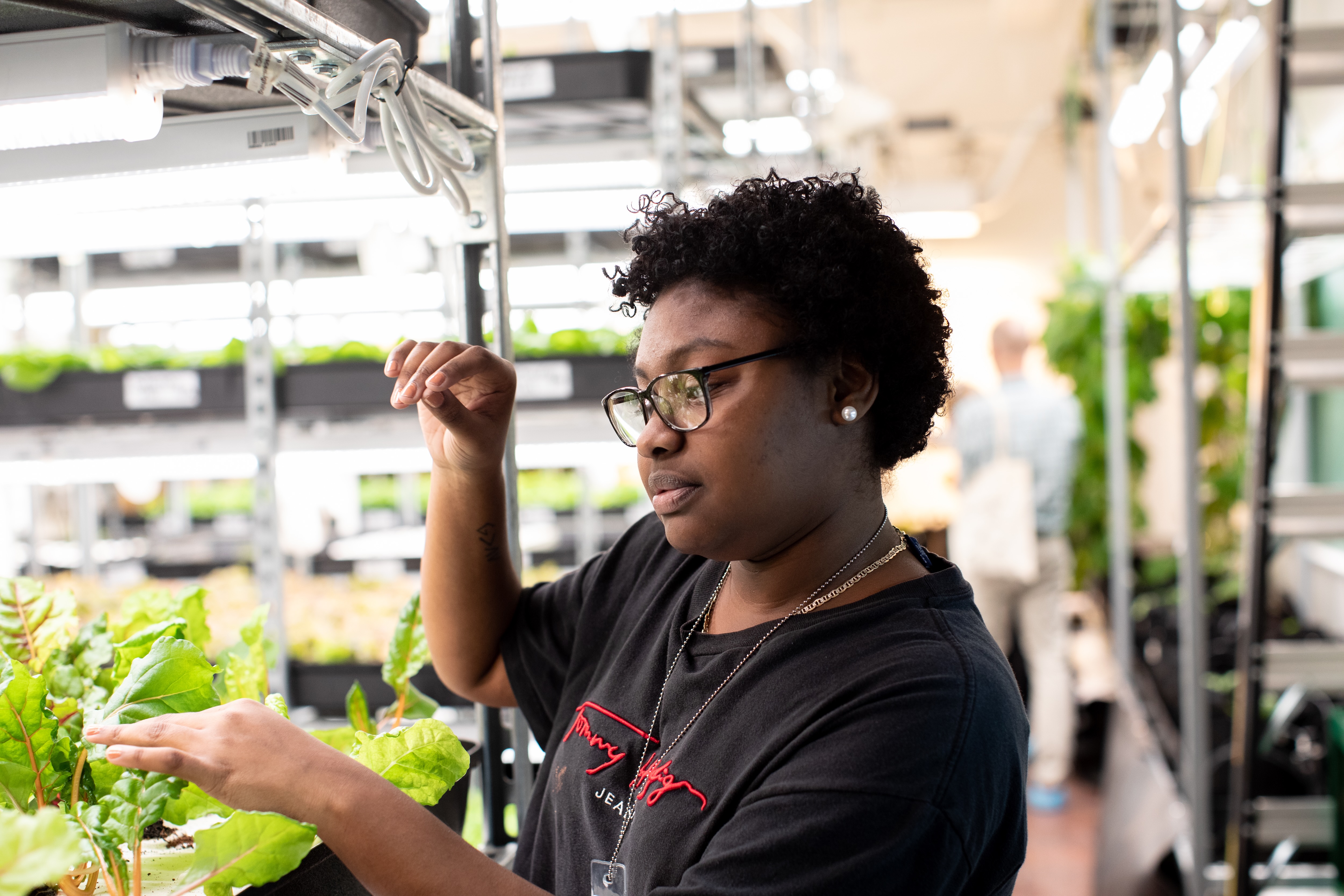Programs and results
What we aim to solve
Teens for Food Justice (TFFJ) is galvanizing a youth-led movement to ensure that all New Yorkers have access to fresh, healthy food and to end the cycle of health complications dramatically and unequally impacting low-income communities of color. TFFJ works within Title 1 middle and high schools in food deserts, training students to maintain indoor hydroponic farms growing thousands of pounds of produce annually that is served at school lunch and distributed to surrounding communities. Students also learn nutrition, health, and advocacy skills that empower them to lead themselves and others towards healthier futures.
Our programs
What are the organization's current programs, how do they measure success, and who do the programs serve?
Teens for Food Justice
Teens For Food Justice works to ensure universal access to affordable, fresh, healthy food through youth-led, community-based solutions. TFFJ students are empowered as 21st century urban farmers, growing large quantities of hydroponic produce inside their schools, and as educator/advocates leading their food-insecure communities towards healthier futures.
Where we work
-
Denver (Colorado, United States)
-
New York City (New York, United States)
Photos
Videos
Our results
How does this organization measure their results? It's a hard question but an important one.
Number of student participants
This metric is no longer tracked.Totals By Year
Related Program
Teens for Food Justice
Type of Metric
Output - describing our activities and reach
Direction of Success
Increasing
Pounds of produce grown
This metric is no longer tracked.Totals By Year
Related Program
Teens for Food Justice
Type of Metric
Output - describing our activities and reach
Direction of Success
Increasing
Our Sustainable Development Goals








Learn more about Sustainable Development Goals.
Goals & Strategy
Learn about the organization's key goals, strategies, capabilities, and progress.
Charting impact
Four powerful questions that require reflection about what really matters - results.
What is the organization aiming to accomplish?
TFFJ aims to empower the next generation of 21st-century urban farmers to grow large quantities of hydroponic produce inside their schools, and provide them the skills and training to be educators/advocates who lead their food-insecure communities towards healthier futures.
What are the organization's key strategies for making this happen?
TFFJ teaches students in food insecure communities, where there is often a parallel lack of nutrition and health education. Students build hydroponic farms and learn how to plant, grow, and harvest fresh produce, which is used to teach them about health, nutrition, and food justice. Produce is eaten by the students and their peers in the school-wide cafeteria, and excess is made affordably available to the community. This teaches students about access, advocacy, and how they can lead change in their communities. Student evaluations from TFFJ in-school programs have shown that, after completing the program, 100% of students understand how nutritious food makes a positive difference in their health, 95% feel that they are more of a leader and advocate for food justice and 76% share what they’ve learned with friends and family. The program was designed to boost student and local community health outcomes thanks to increased exposure and access to healthier foods, improved understanding of nutrition and diet-driven health, and students’ enhanced academic and leadership abilities.
How we listen
Seeking feedback from people served makes programs more responsive and effective. Here’s how this organization is listening.
-
How is your organization using feedback from the people you serve?
To identify bright spots and enhance positive service experiences, To make fundamental changes to our programs and/or operations, To inform the development of new programs/projects, To strengthen relationships with the people we serve, To understand people's needs and how we can help them achieve their goals
-
Which of the following feedback practices does your organization routinely carry out?
We collect feedback from the people we serve at least annually, We take steps to get feedback from marginalized or under-represented people, We aim to collect feedback from as many people we serve as possible, We act on the feedback we receive
-
What challenges does the organization face when collecting feedback?
We don't have any major challenges to collecting feedback
Financials
Financial documents
Download audited financialsRevenue vs. expenses: breakdown
Liquidity in 2024 info
11.17
Months of cash in 2024 info
1.4
Fringe rate in 2024 info
15%
Funding sources info
Assets & liabilities info
Financial data
Teens For Food Justice, Inc.
Balance sheetFiscal Year: Jul 01 - Jun 30
The balance sheet gives a snapshot of the financial health of an organization at a particular point in time. An organization's total assets should generally exceed its total liabilities, or it cannot survive long, but the types of assets and liabilities must also be considered. For instance, an organization's current assets (cash, receivables, securities, etc.) should be sufficient to cover its current liabilities (payables, deferred revenue, current year loan, and note payments). Otherwise, the organization may face solvency problems. On the other hand, an organization whose cash and equivalents greatly exceed its current liabilities might not be putting its money to best use.
Operations
The people, governance practices, and partners that make the organization tick.
Documents
Chief Executive Officer
Meghan Groome PhD
Deputy Director
Gabrielle Mosquera
Number of employees
Source: IRS Form 990
Teens For Food Justice, Inc.
Officers, directors, trustees, and key employeesSOURCE: IRS Form 990
Compensation data
Teens For Food Justice, Inc.
Highest paid employeesSOURCE: IRS Form 990
Compensation data
Teens For Food Justice, Inc.
Board of directorsas of 08/27/2025
Board of directors data
Tara Swibel
Triptyk Studios
Randy Stern
Sternvest Ltd
Bridget Alameda
PriceWaterhouseCoopers
Brooke Brenner
Chana Chenfeld VICE CHAIR AND VP
Ian Forster
Inclusiv
Jennifer Siegel
Ares Management
Marcy Warren
Meghan Groome Chief Executive Officer
Randy Stern
Sternvest Ltd
Raymie Fernandez
DREAM Charter Schools
Sushma Dwivedi Jindal
Tara Smith Swibel
Triptyk Studios
Tracy Weldon
BNY
Valerie Soll
FIT Textile Studies Graduate Program
Board leadership practices
GuideStar worked with BoardSource, the national leader in nonprofit board leadership and governance, to create this section.
-
Board orientation and education
Does the board conduct a formal orientation for new board members and require all board members to sign a written agreement regarding their roles, responsibilities, and expectations? yes -
CEO oversight
Has the board conducted a formal, written assessment of the chief executive within the past year ? yes -
Ethics and transparency
Have the board and senior staff reviewed the conflict-of-interest policy and completed and signed disclosure statements in the past year? yes -
Board composition
Does the board ensure an inclusive board member recruitment process that results in diversity of thought and leadership? yes -
Board performance
Has the board conducted a formal, written self-assessment of its performance within the past three years? yes
Organizational demographics
Who works and leads organizations that serve our diverse communities? Candid partnered with CHANGE Philanthropy on this demographic section.
Leadership
The organization's leader identifies as:
The organization's co-leader identifies as:

